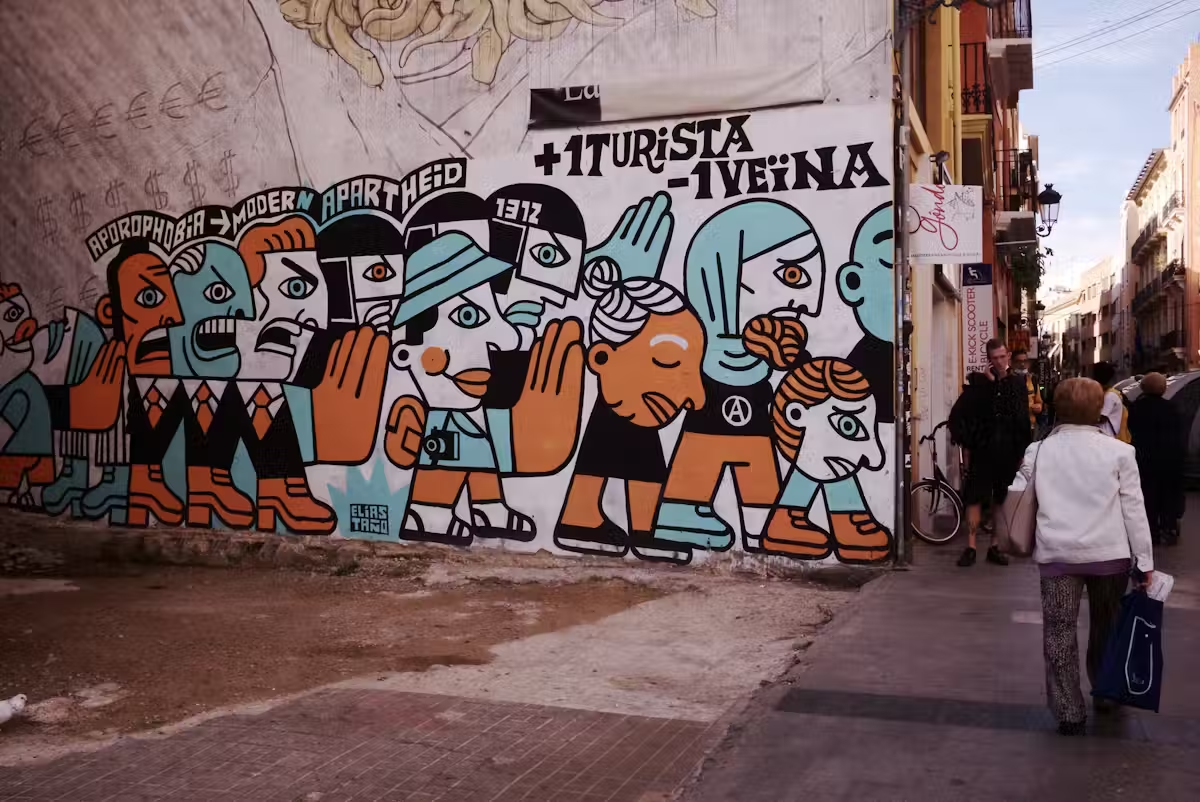Introduction to Barcelona’s Tourism Challenges
In April 2024, a notable protest transpired near the Sagrada Familia in Barcelona, highlighting the local sentiment towards the burgeoning tourism industry. This protest, characterized by members blocking a touring bus and displaying a banner with the phrase, “let’s put out the tourism fire,” illustrated growing community concerns. Such movements are increasingly common, pointing to the tension between rising tourist numbers and the local’s need for social justice and sustainable development.
Social Resistance in Tourist Hotspots
Barcelona has experienced a wave of protests aimed at challenging the detrimental effects of tourism, and it is not alone. Other beloved destinations, including the Canary Islands and Málaga, have felt the heat of similar movements. Tourists aren’t the direct target of these protests; rather, it’s the structural dependencies on tourism that many residents decry, particularly as rising property prices and gentrification force locals out of their neighborhoods.
The Roots of the Crisis
The ramp-up in tourists returning to Barcelona following COVID-19 lockdowns has fueled local frustrations. Issues such as housing shortages, job insecurity, and environmental degradation have spurred anxiety among residents. The ongoing privatization of public spaces has compounded these concerns, especially with high-profile events like sporting competitions bringing minimal local benefit.
The Emergence of Activism
Anti-tourism activism emerged significantly in the mid-2010s, with neighborhood groups like the Neighbourhood Assembly for Tourism Degrowth (ABDT) urging a reduction in reliance on tourism. The ABDT promotes a shift in terminology from “overtourism” to “touristification,” emphasizing that the issue goes beyond mere visitor numbers and highlights the structural inequalities prevalent in tourism.
Unlike earlier protests that focused solely on opposition, recent movements are pushing for organized solutions. For instance, at a significant demonstration in July 2024, activists unveiled a manifesto addressing economic dependency on tourism. Key proposals included:
- Ending public subsidies for tourism promotion
- Regulating short-term rentals to prevent housing losses
- Limiting cruise ship arrivals
- Protecting labor rights with fair wages
- Diversifying the economy
Continuing Momentum of Movements
As confrontations persist, organization and coordination among anti-tourism groups have gained ground. The Southern Europe against Touristification Network met in April 2025 to unite activists across multiple cities in Southern Europe, planning protests and shared agendas.
Who Suffers the Most?
The impacts of the tourism economy disproportionately affect marginalized groups—these are the tenants, seasonal workers, and migrants who lack political clout. Activism in Mediterranean cities has grown to incorporate broader social issues, connecting the struggles against tourism with demands for fair labor practices and preserved public spaces.
This intersectional approach signifies that many residents prefer to prioritize community well-being over economic growth. The current wave of activism proves that collaboration can lead to organized alternatives and concrete proposals aimed at fostering a more equitable and sustainable urban landscape.
Gaps in Academics and Policies
Despite numerous studies addressing tourism, there remains a critical oversight – the lived experiences of those in tourist hotspots. This lack of engagement leads to policies that focus on managing visitors instead of tackling systemic imbalances. Consequently, many recommendations fail to alleviate the pressing social inequalities exacerbated by rapid tourism growth.
Addressing the exploitation of precarious labor is a pressing challenge in the tourism sector. Many roles come with low wages and circuitous job security. A shift towards sustainable practices requires a focus not only on enhancing the profitability of tourism but also on creating dependable job opportunities for locals.
Rethinking Urban Tourism
Understanding protests as integral to broader social justice movements fosters a reimagining of urban tourism. The aim should be to redesign cities into places that prioritize thriving residents, not just tourist attractions. To achieve this vision, addressing the inequalities inherent in touristification processes must be at the forefront of community planning.
结论
The landscape of tourism continues to evolve, and the voices of locals cannot be ignored. On platforms like GetTransfer.com, travelers can enjoy personalized transfer options while supporting local communities through ethical travel practices. By offering a variety of vehicles and transparent pricing, GetTransfer provides a user-friendly solution for exploring destinations. In a world where personal experiences matter, consider the benefits of traveling with trusted providers that align with community welfare. Book your journey today with GetTransfer.com.

 Barcelona’s Tourism Conundrum: Social Movements and Local Backlash">
Barcelona’s Tourism Conundrum: Social Movements and Local Backlash">
评论